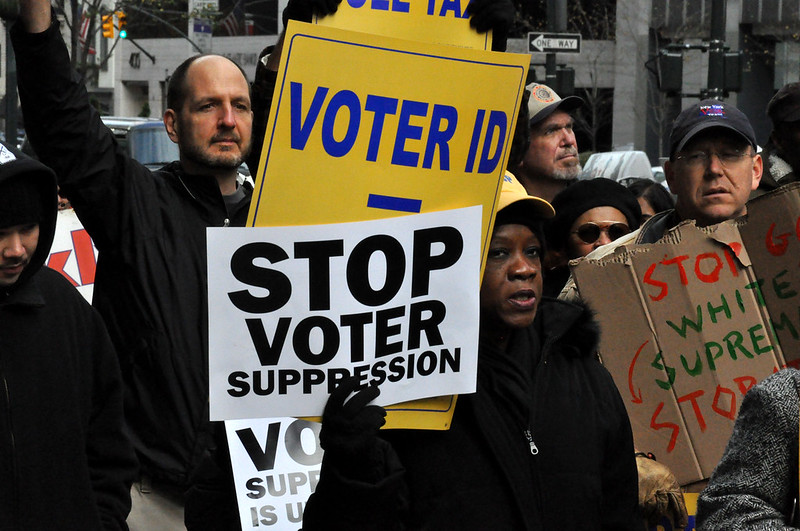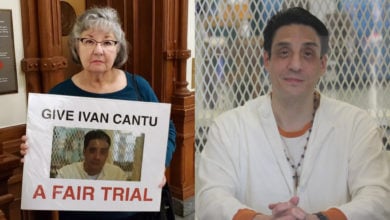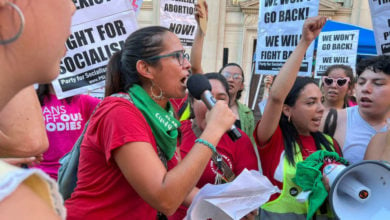A lawsuit filed by the Texas Civil Rights Project and Texas Organizing Project has scored a victory against voter suppression in Bexar County, Texas — where the county seat is San Antonio — forcing the county to open an additional 129 voting locations. Keeping voting locations open is a crucial avenue of struggle in the fight against voter suppression in the South.
Bexar County’s location closings violated Texas election code
Even by Texas’s extremely voter-unfriendly election code, Bexar County’s election administration would not have met the bare minimum requirements.
The Texas Election Code states that the “total number of countywide polling places may not be less than: … 50 percent of the number of precinct polling places that would otherwise be located in the county for that election.” In other words, the county needs to run one polling place for every two precincts.
Bexar County, which has 776 precincts, needs to have a minimum of 388 polling places. Instead, the county was proposing just 267 locations for approximately 1.2 million registered voters. It was over this shortfall that TCRP and TOP sued Bexar County Election Administrator Jaque Callanen.
This lawsuit follows a previous lawsuit filed by Texas Civil Rights Project in 2020 over Bexar County’s violation of legal framework in determining voting site locations. The county lost this suit too, and was forced to restore previously closed voting locations.
According to Joaquin Gonzalez, a lawyer for TCRP, “The baseline for any election is one polling place for [each] election precinct.” The addition of 129 voting locations is important, but still far beyond what civil rights advocates consider the minimum for electoral fairness.
County decisions part of a broad pattern of voter suppression
Closure of polling locations in heavily Latino cities like San Antonio is one of several fronts in the right-wing assault on voting rights.
In 2013, the Supreme Court struck down the provision of the Voting Rights Act that required states and localities with a history of racist voter suppression to demonstrate their compliance with federal law before making major voting changes.
Just hours after the Supreme Court gutted the VRA, then-Texas Attorney General Greg Abbott announced a voter ID law that was considered the strictest in the country at the time. North Carolina also immediately implemented a voter ID law that a federal court determined was designed to target Black voters “with almost surgical precision.”
States previously regulated by the VRA immediately began closing polling places. One thousand six hundred and eighty-eight polling places in these states closed between 2012 and 2018. Polling places have continued closing despite the South having the largest growth rate in the country in the past 10 years, at 10.2 percent.

In 2016, TCRP sued the state on behalf of Texas voters who were forced to take a separate trip to the Department of Public Safety office in order to register to vote. This effectively excludes those who cannot afford to take an entire day off of work to register to vote and those who renew their driver’s license online. In 2018, Texas appealed that suit in an attempt to maintain its system of disenfranchisement.
In 2019, Texas passed Senate Bill 9. This new bill concentrated more polling sites in whiter neighborhoods with historically higher voter registration numbers and made it a felony for Texans to vote if they are ineligible to do so. This not only criminalizes unsuspecting voters who may not be aware of their voting status, but it also abandons areas with low voter registration by taking away polling sites. Since reducing voting sites will decrease voting participation, this creates a feedback loop that further suppresses voter turnout.
The Bexar County decision is welcome news that provides a rare reversal of local voter suppression efforts.
The fight for democracy is still ahead
The recent push by the rightwing in all sectors, and in the voting rights arena especially, is something that has to be fought tooth and nail. Texas plays a key role in pushing the far right-wing agenda across the country, and if Texas is allowed to successfully disenfranchise Black and Brown voters, other states will follow suit.
Nonprofit legal advocates have waged important campaigns to keep voting locations open and help voters clear the obstacles to registration. But they are limited in what they can offer under the current system. The Democrats have been largely absent from this fight, as much of the right-wing assault on democracy has happened during the Obama and Biden administrations — when Democrats held the reins of power.
We must continue to fight back against these attacks on our basic democratic rights and build a mass movement capable not just of resisting the right-wing assault on democracy, but expanding democracy even further.





